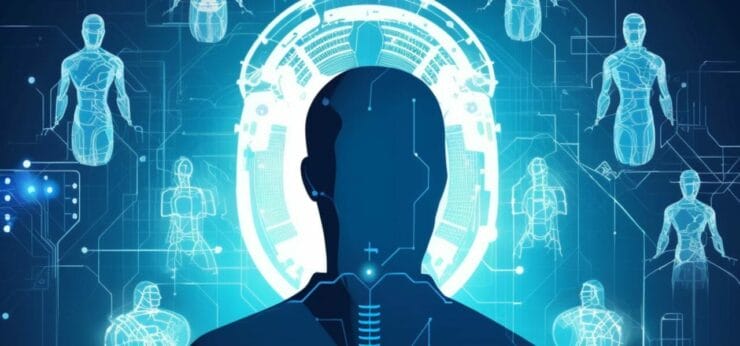In a 2021 interview with AI researcher Lex Fridman, Chainlink co-founder Sergey Nazarov examined how blockchains and decentralized infrastructure such as oracle networks and smart contracts could help create guardrails for artificial intelligence (AI) systems as they become more sophisticated and widely implemented.
He argued that blockchains and private keys could make it possible to impose strict limits on AI, provided that encryption is upheld and AI is not specialized to break encryption. “If you bake in these blockchain-based limitations, you can create the conditions beyond which an AI could never act,” he explained.
While people will naturally begin to distrust AI as it evolves, Nazarov said that when it comes to aligning AI systems with human interests, “It’s not about ‘Is it smarter than us?’ It’s about ‘Will the encryption hold up?’”
Two years later, shortly after more than 2,600 tech industry leaders including Tesla CEO Elon Musk and Apple co-founder Steve Wozniak petitioned to temporarily pause AI development, Nazarov revisited the argument for encryption as a countermeasure to protect human society against the misuse or misalignment of AI.
“The question is not whether we should slow down the development of AI, that ship has likely sailed,” he wrote. “The key question now is how key parts of our society can become AI resistant.”
Nazarov advocated for AI systems to be designed with built-in, private key-enforced safeguards utilizing blockchain technology and decentralized infrastructure, such as oracle networks, that protect against single points of failure. He posited that such AI-resistant systems will become increasingly attractive amid growing distrust in AI and crises of faith in longstanding institutions like traditional finance.
“I strongly believe that AI will accelerate certain parts of societal fear, mistrust and degeneration, to the point that restoring trust through the adoption of cryptographic guarantees, decentralized infrastructure and cryptographic truth-based systems will be the only way forward,” he wrote.
“Once the valuable link between putting key parts of society into decentralized systems and becoming more AI resistant is made even more clear, I expect that our industry will become even more critical to how society works in a cryptographically guaranteed manner.”


